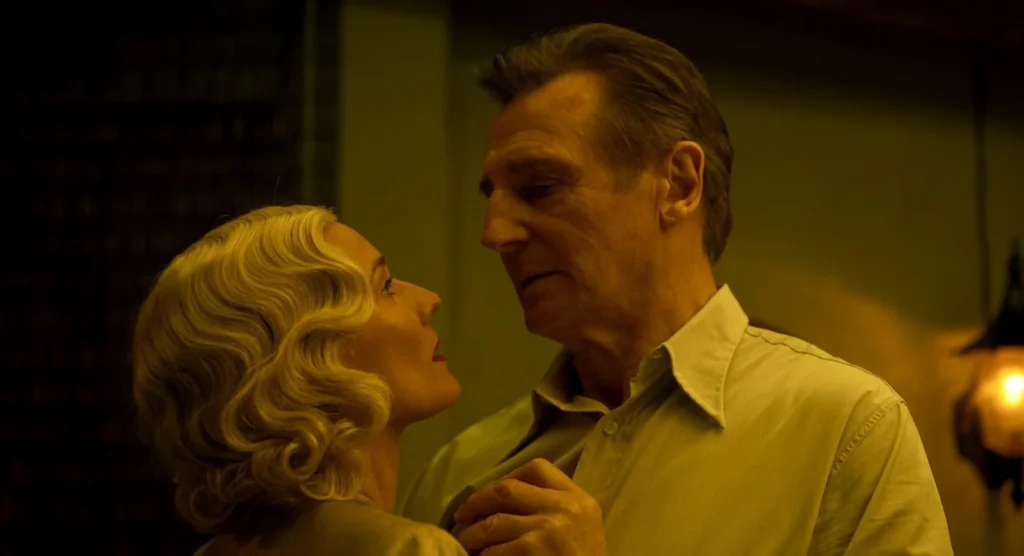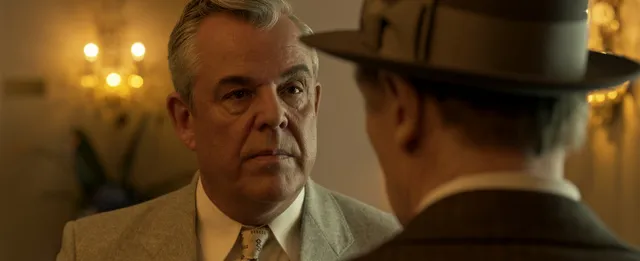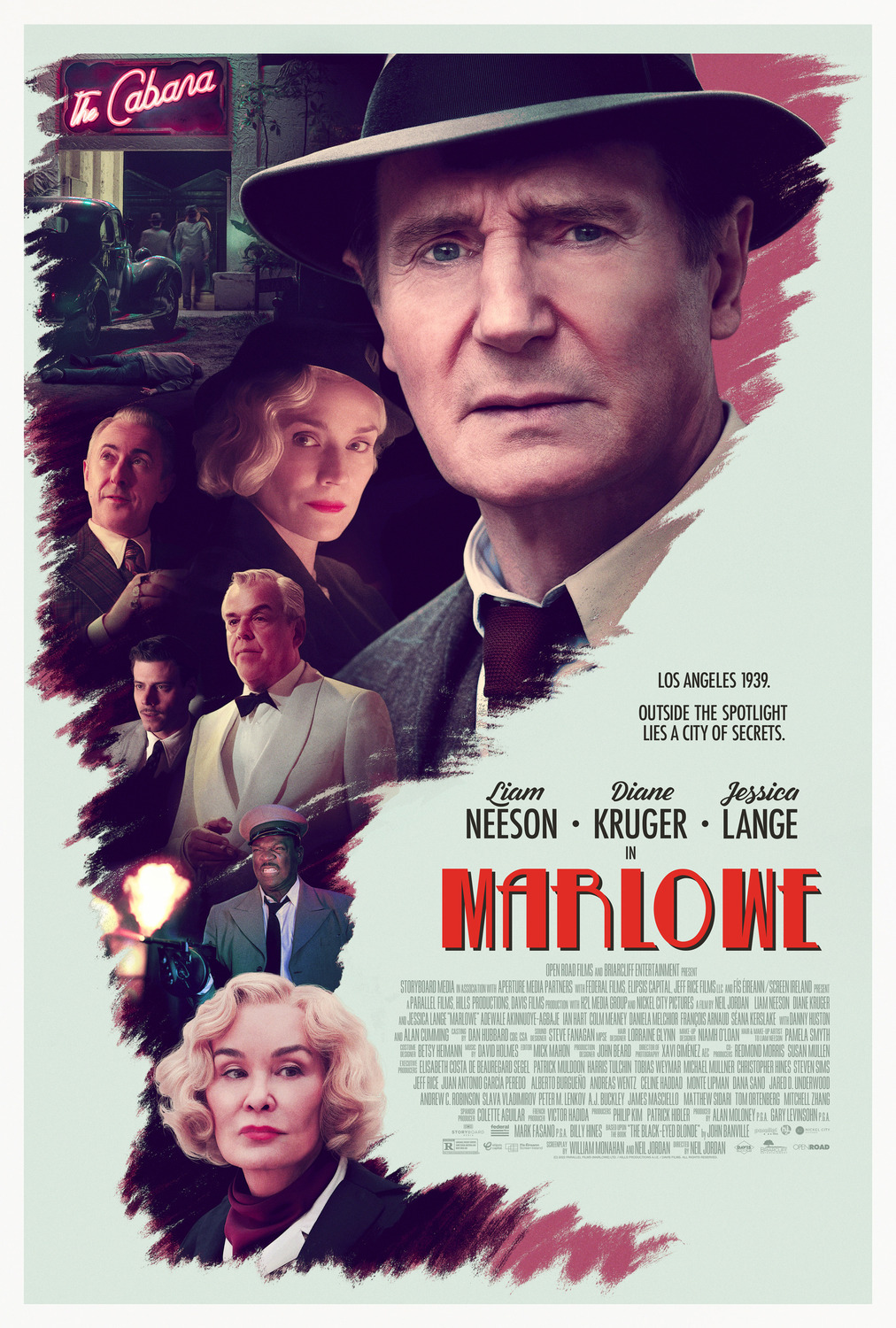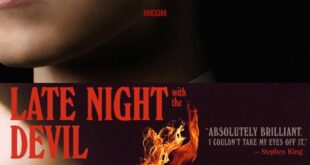I love good film noir. As a fan of genre pictures, film noir is among my favorite genres. Philip Marlowe, of course, gets my noir senses going. The character created by Raymond Chandler has been played by legendary actors like Humphrey Bogart in The Big Sleep, Robert Mitchum in Farewell, My Lovely, Elliot Gould in Robert Altman’s sublime The Long Goodbye, and now we can add Liam Neeson to that list. The only problem is that despite a fine cast and crew, Marlowe doesn’t have the entertainment and intrigue value of previous productions. All the elements are here for a good noir, and one of the film’s pleasures is watching this cast relish in juicy dialogue by William Monahan. However, everyone feels almost ten years too old for their part. That’s not to say the film is a total bust, there are positive aspects about it, and it’s better than the twenty-something percent it’s at on Rotten Tomatoes, but overall I can’t quite recommend it.
Marlowe is an adaptation not of Raymond Chandler but John Banville’s 2014 novel The Black-Eyed Blonde, which the Chandler estate approved. The year is 1939, right before US involvement in World War II, and Marlowe is hired to find the ex-lover of a glamorous heiress. This takes him through the seedy world of Hollywood movie-making beneath the glamourous appeal. Marlowe is hardly the only film to examine past Hollywood recently. One of Hollywood’s favorite things to do is to make cynical movies about…Hollywood. The plot is not as dense as, say, The Big Sleep. It’s relatively easy to follow and offers little in the way of surprises.

Neil Jordan is an interesting director to helm this project. This is his second pairing with Liam Neeson after Michael Collins in 1996. Jordan isn’t known for film noir per se though past films like The Crying Game have noir elements. He’s more known for psychological thrillers and crime dramas. Jordan directs with a sure hand, though—unfussy and smooth shots. Marlowe was shot in Barcelona, Spain, an inspired place to film for a noir set in the late 30s Los Angeles.
The performances are probably the best thing about the film even though, as I mentioned earlier, perhaps everyone is about ten years too old for their parts. Liam Neeson feels at home as Marlowe, but the actor is seventy years old now and starting to look it. There are low-key action scenes in Marlowe, nothing approaching the Taken level of ridiculousness. Still, even then, Neeson comes across as an older man who is no longer intimidating. The script by Monahan and Jordan attempts to subvert this by including many throwaway lines about his age. He even turns down lovemaking from Diane Kruger’s Clare Cavendish because, quote, “You’re so beautiful it would be too much for me to bare.” Or something like that. I think Neeson is supposed to pass for the late 50s, just like 46-year-old Diane Kruger is supposed to pass for younger or 73-year-old Jessica Lange is supposed to pass for younger.

My favorite performances in the film are outside of Neeson, Kruger, and Lange. The always-reliable Danny Huston is on hand to play a sleazy nightclub owner and is the main villain of the piece. The underappreciated Alan Cumming shows up in a juicy villainous part full of some of the best dialogue in the film. Colm Meaney appears as Marlowe’s friend in the precinct. However, it’s the performance of Adewale Akinnuoye-Agbaje as Cedric, Marlowe’s chauffeur, who steals the show. The quality of the acting elevates the rather stale material.
So I can’t wholeheartedly recommend Marlowe overall. This is the definition of better suited as a streaming option. The character of Marlowe has been around for 85 years but don’t expect the latest iteration to spark a renaissance in Marlowe material. The film failed at the box office and finished eighth during its opening weekend. At the screening I attended, it was only two other people and me. This film is mainly for Chandler completists only, and I don’t even know if they’ll get satisfaction because Marlowe is not very Chandlerish in this adaptation. Ultimately, Marlowe is too pastiche to be truly unique and doesn’t add anything new despite being well-made.
**1/2 out of ****

 Movie Finatics The Place for Movie Lovers
Movie Finatics The Place for Movie Lovers



